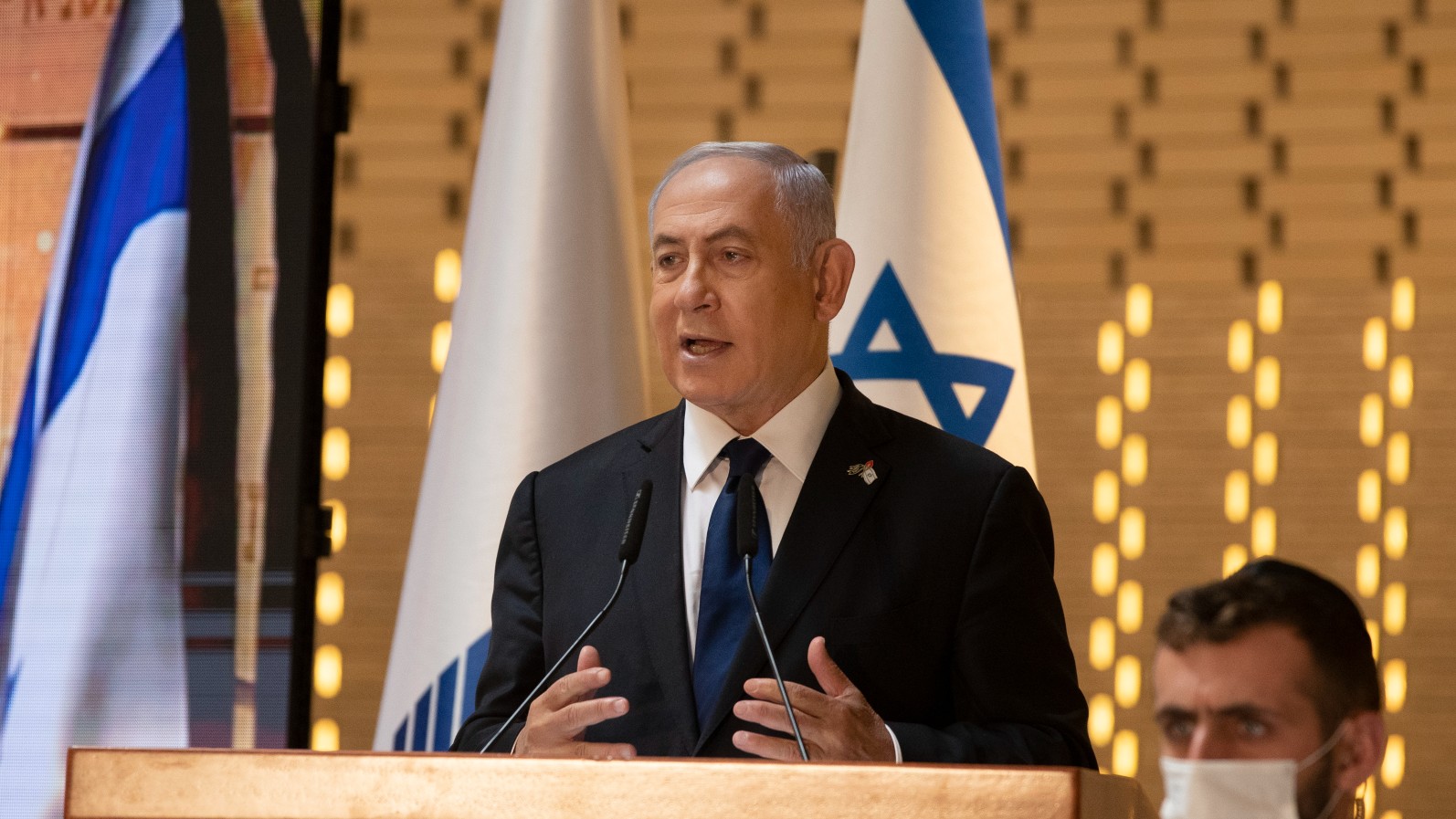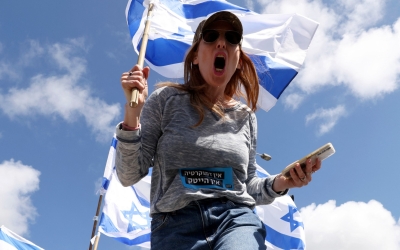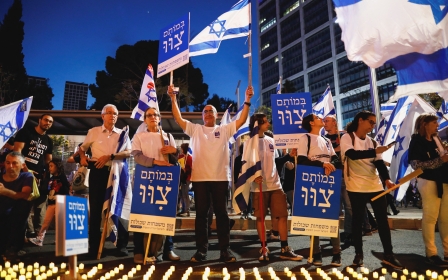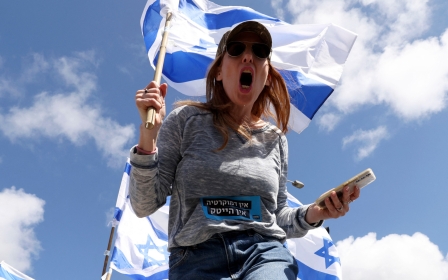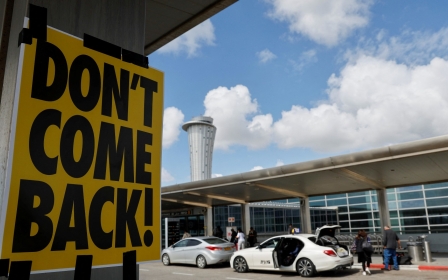On Memorial Day, Israel’s dead soldiers become a new battleground
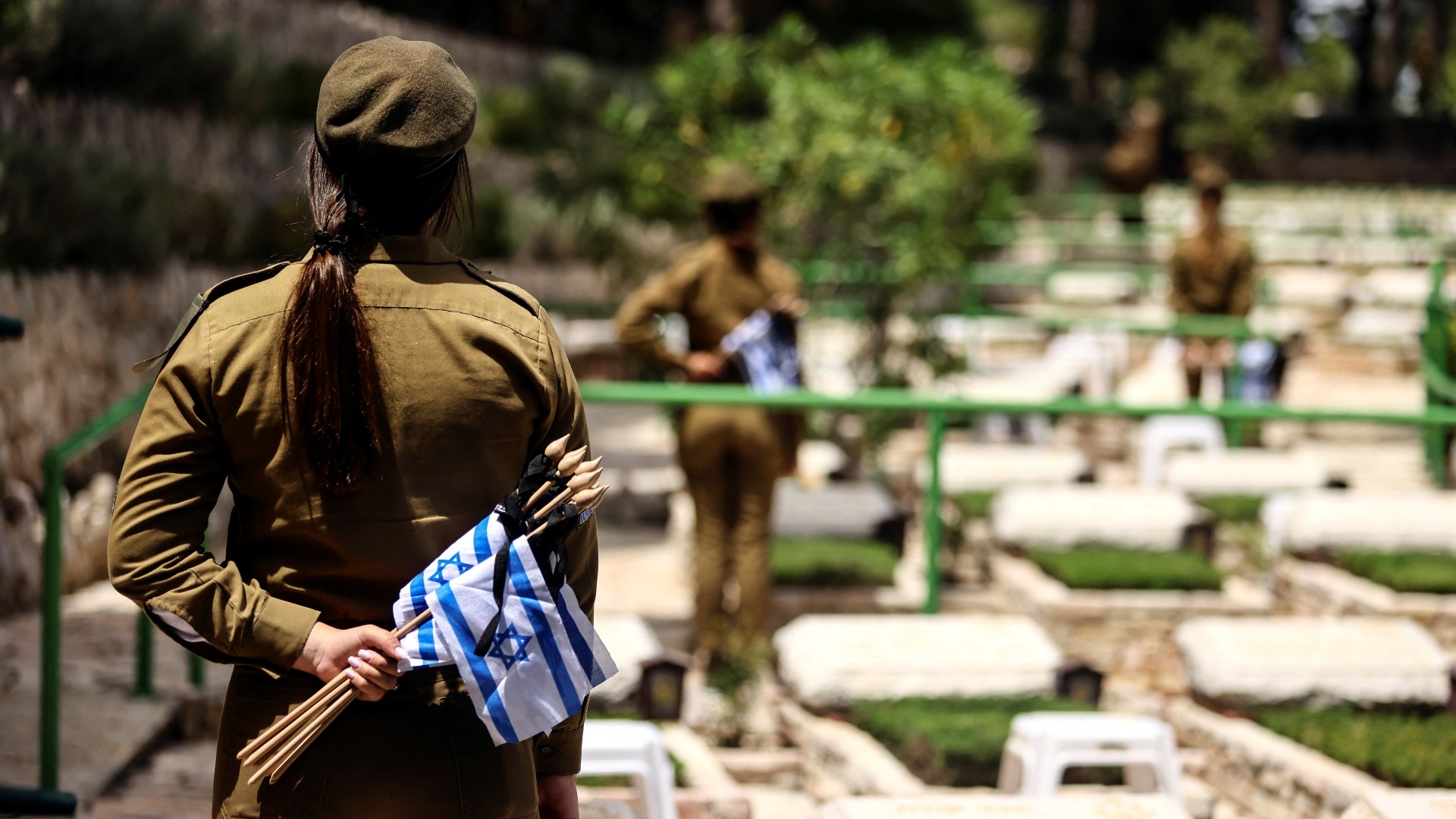
Israel is at its most reflective and triumphant when it marks Memorial Day, commemorating fallen soldiers, and Independence Day soon after. One may think especially so as the milestone of its 75 years of existence approaches.
Instead, as Memorial Day begins on Monday night, we find an angry, sad country, where the most delicate seams of unity and togetherness (which these national days are meant to represent) are disintegrating before people’s eyes.
“Unprecedented” is the adjective most widely used to describe the 16 weeks Israel has been ruled by its far-right, nationalist, brutal and cynical government, which has undermined the very foundations of statehood and sparked a mass protest movement that goes way beyond the “judicial reforms” that triggered it.
Israel’s deep social divide has already targeted the military’s title of “the people’s army”. Now it’s moving to the one territory that has for decades been kept out of various social and political rifts: the 54 military cemeteries and their 24,213 graves scattered all over Israel.
The fear in Israel is not only that Memorial Day will be marked amid protests; it’s of a Memorial Day of actual confrontation and even violence.
New MEE newsletter: Jerusalem Dispatch
Sign up to get the latest insights and analysis on Israel-Palestine, alongside Turkey Unpacked and other MEE newsletters
For the first time, the Israeli security services and police force are on alert - not just to keep these national days safe, but to secure (as much as possible) the routine of the state ceremonies at the cemeteries and avoid confrontations between angry bereaved families and unwanted politicians attending according to protocol.
“Both the Shin Bet and the police will have a lot of work,” warns Eli Ben Shem, head of the Organisation of Fallen Troops support group, himself a bereaved father. “In my nightmares, I see clashes and curses over the graves.”
Those visions are of clashes between families, and between families and politicians. Others fear more than that. The words that traditionally accompany this day, like “sanctity” and “holy”, sound hollower and more cynical than ever coming from politicians who just try to save face. Their face.
Even those Israelis who previously felt uneasy about the indoctrination and political use embedded in those ceremonies now say they miss the sentiment of one week of consensus and unity.
Boycott
For the first time in 50 years, Lea Mandelzis won’t attend the official commemoration ceremony for the fallen Israeli soldiers on Memorial Day.
Instead, she commemorated her husband, Major Yaakov-Mendi Mandelzis, who lost his life in the 1973 Middle East war, three days earlier, accompanied by her family and his surviving friends.
They were alone, this year intentionally avoiding the presence of members of the government who will be spread between the 54 military cemeteries and delivering speeches.
“This year, I couldn’t stick to that routine,” she told MEE.
“Over the decades, Mendi’s combat friends used to join me and my sons at the memorial ceremonies organised by the state, regardless of what government was in power. This year, even the soldiers who served under his command asked if they could not attend the state ceremony,” she added.
According to Mandelzis, the sense of anger and insult against the government is so profound “it actually degrades the memory” of people who died fighting for a version of Israel that Prime Minister Benjamin Netanyahu and his ministers are trying to destroy.
“I won’t let them use the grave of my husband as a setting for their cynical performance.”
'I won’t let them use the grave of my husband as a setting for their cynical performance'
- Lea Mandelzis, wife of slain soldier
Mandelzis is one of at least 8,500 families - out of the 25,000 families who have lost a relative in military service - who approached Ben Shem's support group, asking that politicians be prevented from attending memorial services. Members of the government are certainly not welcome by many.
Some families objected to the presence of specific politicians, like those from the southern town Beersheva (a stronghold of Netanyahu’s Likud party), who demanded far-right National Security Minister Itamar Ben Gvir be banned from the city’s Memorial Day event.
Some consider him illegitimate because of his former affiliation with Kach, the Jewish supremacist movement; others resent the fact he never served in the army. Ben Gvir refused to commit not to come.
In other cemeteries, ministers who labelled pilots and officers who joined the protests “anarchists” and “terrorists” are now unwanted representatives. Many others just don’t want any politicians at all.
Israel's Druze community says it wants no politicians near their services who voted for the 2018 Nation State Law that enshrined Jewish supremacy.
In a series of meetings between the different groupings of bereaved families and Memorial Day organisers, including Defence Minister Yoav Gallant himself, all sorts of solutions were raised.
Let the politicians come but don’t let them speak; allow them to briefly attend to place flowers; have opposition and government MPs come together in pairs. This is just the beginning. They are bound to fail.
The rifts and divisions in Israeli society, which were triggered by attempts by the government to severely undermine the judiciary in moves critics say are dismantling Israel’s democratic system, have made the term “civil war” a common refrain.
Throwing eggs
In certain military cemeteries, families are hoping to mute the voices of politicians by throwing eggs at microphones or wearing headphones. Even if little of this actually takes place or all of it is prevented, this flow of information sets the tone.
On a grave of one fallen soldier, his family have planted a blue-and-white flag with the text: “Excuse us Yossi, this year we won’t be here. Just like you, we are out there to fight for freedom and democracy. Love, mother, Didi and the rest of the family.” Other families are placing similar messages on graves.
So far, Netanyahu and several other ministers have decided to stick to the decades-old routine and impose their presence even when unwanted. After all, Memorial Day is a big stage to be seen and heard. Giving up on it will be interpreted as weakness and caving in to the segment of the population they keep defining as “traitors”.
Yet pressure is building and some of the government’s ministers and MPs have given in and withdrawn from the ceremonies.
Netanyahu, who sensed the mood a month ago, was quick to label reactions to ministers’ presence at Memorial Day events a “provocation”. He knows very well it goes beyond that, and in a way undermines his own legitimacy, just as opinion polls show him and his Likud party drastically declining in popularity.
The first warning signs were indeed seen over a month ago. In a televised meeting between parents of slain soldiers from both political camps, Naomi Miller, mother of an officer killed in Lebanon in 1993, painted a graphic image.
“If I could, I would hire a craftsman to build me some king of construction to drag the body of my son out his grave and out of this country,” she said. Later, came the thousands of others like her who sensed something has drastically changed with what they deem an acceptable way to mark Memorial Day.
Referring to the unfolding drama as just a “provocation” won’t help Netanyahu this time. Once upon a time, Memorial Day was the one day in a year when all differences were covered up with a basic sense of common grief. Not anymore.
There is little in common; nothing “all Israelis” share. For many, the army can no longer be described as belonging to the people. Talking about “national unity” sounds false when at the same time ideas are being floated of dividing Israel into cantons along sectarian and other lines.
This Israel, which Palestinians argue already exists for their community, is preached especially by the Secular Forum, a small NGO fighting religious radicalisation, and discussed on social media. It is still a fantasy for some and a nightmare for others, but its spirit prevails.
The phenomenon is not entirely new. Over the last three decades, tens of ceremonies alternative to the state-run official ones have emerged. They sprung from a basic dispute over the perceived necessity of use of force and the occupation of Palestinian lands.
The best known is the joint Israeli-Palestinian memorial ceremony, detested by all establishments but constantly growing over the last 18 years. This year, again, Israel tried to bar bereaved Palestinian families from attending the joint service under the pretext of a curfew on the occupied West Bank. The Supreme Court on Sunday overruled the government’s decision.
There are many other politically or socially based alternative ceremonies. The illusion of “oneness” is long gone but never as acutely as this year. Education Minister Yoav Kisch’s public appeal to Israelis to be “one people, one flag, one nation” is not only soaked with fascist fragrance, it’s just false. Hate, fear and anger fill the air with suffocating poison on both sides.
“There was never a time when all Israelis shared the same experience, not even Memorial Day,” Professor Vered Vinitzky-Seroussi, sociologist at the Hebrew University in Jerusalem, told MEE.
“The Palestinian citizens of Israel and the orthodox community were never part of it. That already leaves about half of the Israeli population out of the seemingly shared experience.”
Vinitzky-Seroussi said what is new is the unravelling of the fantasy Memorial Day was non-political.
“It was never true, anyway. After all, it was a political decision that led the fallen soldiers to their death. The only difference is that now it is all out in the open. I wonder how much protest will penetrate the cemeteries, the one location that has been considered extraterritorial,” he said.
The fear is certainly not baseless. Ephraim Lapid, a retired brigadier general, former military spokesperson and chief commander of Army Radio, recently held several meetings with officials involved in organising Memorial Day ceremonies.
Following these meetings, he told MEE: “On top of all the concerns and fears, this discourse has penetrated into military units.”
Lapid described young soldiers as feeling “angry and disappointed”, both at the sight of six ministers who avoided their national military service, and the increasing unwillingness of the orthodox community (a bulwark of Netanyahu’s government) to serve in the army.
“It might be dangerously demoralising. This discourse and the protest overshadow the essence of Memorial Day,” he said.
Independence Day
Once Memorial Day and its pressures are passed, another date looms large: Independence Day.
The highlight of the day, which begins on the evening of 25 April, is supposed to be the torch-lighting ceremony on Mount Herzl by 12 notable Israelis. Over the years, many alternatives to the state-controlled ceremony emerged as schisms in society deepened.
Under the auspices of Transport Minister Miri Regev, who is in charge of the ceremony, Netanyahu, who, contrary to protocol, has insisted each year on delivering a speech, is again hijacking the central ceremony. This year, he feels a video performance will suffice.
Like with Memorial Day, roughly half of Israelis already feel completely alienated from what is supposed to be a unifying event. The fear of provocations from the attending crowd has led to a series of decisions that do not spell independence or freedom.
'There was never a time when all Israelis shared the same experience, not even Memorial Day'
- Vered Vinitzky-Seroussi, professor of sociology
Guards at entrances have been granted permission to search attendees and confiscate anything that might be served for some kind of vocal or written protest. Unprecedented numbers of police forces will supervise the event. So too the secret service behind the scenes.
Israeli Independence Day marks the Zionist victories over the British and Arab armies in 1948 that led to the Palestinian Nakba and creation of Israel. The enemy, this time, are instead the people of Israel terrified by what Netanyahu’s government is doing to their country.
The government reciprocates with fear. Terrified of any disturbance or protest, the TV broadcast will be pre-recorded instead of live this year. Symbolically, they have on tape an alternative to reality.
Regev personally invited head of opposition, Yair Lapid, to attend the ceremony. Lapid has chosen to leave his seat empty. Meanwhile, the organisers of the weekly mass demonstrations in Tel-Aviv are organising a special Independence Day event in the same location the protests usually take place. This is certainly a first in Israeli history.
Other festivities are also tarnished by the protests and the anger. Proponents of the judicial reforms and other just right-wingers are demanding all artists who have participated in the protest should be banned from performing on Independence Day. After all, they joined “the left that betrayed the state”, as Likud MP Tally Gotliv said at a rally last week. That’s the spirit. That is the mood.
Middle East Eye delivers independent and unrivalled coverage and analysis of the Middle East, North Africa and beyond. To learn more about republishing this content and the associated fees, please fill out this form. More about MEE can be found here.


